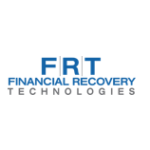Supreme Court reverses course in regards to securities class actions
Last month, the U.S. Supreme Court came to a long-awaited decision that could affect the course of future securities class actions. In the decision, justices ruled 6-3 that shareholders of the biotechnology company Amgen Inc. should be allowed to present their case as a class without first having to show that misinformation had materially and fraudulently inflated its stock price. The Supreme Court decision essentially makes it easier for investors to bring class-action lawsuits against potential defendants. The court’s resolution veers from a path of recent decisions that ultimately have made it more challenging for shareholders to bring group actions against companies.
 In the original case, shareholders had accused Amgen of making misleading statements between April 2004 and May 2007. Plaintiffs claimed the company had exaggerated the safety of its anti-anemia drugs. After the class was certified by the district court and Amgen appealed, the case found its way to the Supreme Court. The court’s final decision regarding the appeal states that shareholders are able to present a class action against an organization without first having to show that misinformation had materially and fraudulently inflated the company’s stock price. As Justice Ruth Bader Ginsburg wrote in the decision, early stages of class-action litigation are meant simply to ensure that cases are litigated fairly.
In the original case, shareholders had accused Amgen of making misleading statements between April 2004 and May 2007. Plaintiffs claimed the company had exaggerated the safety of its anti-anemia drugs. After the class was certified by the district court and Amgen appealed, the case found its way to the Supreme Court. The court’s final decision regarding the appeal states that shareholders are able to present a class action against an organization without first having to show that misinformation had materially and fraudulently inflated the company’s stock price. As Justice Ruth Bader Ginsburg wrote in the decision, early stages of class-action litigation are meant simply to ensure that cases are litigated fairly.
According to Kevin LaCroix of the D&O Diary, the Amgen outcome spares plaintiffs the burden of a pre-certification contest. In contrast, defendants will now be deprived of one of their tools in trying to block class certification. This decision differs from recent judgments that were geared to limit the scope of class-action litigation. Courts in the past have based decisions on the policy argument that the number of securities fraud litigation was getting out of hand.
Read this Reuter’s article for more details on the Supreme Court decision.





